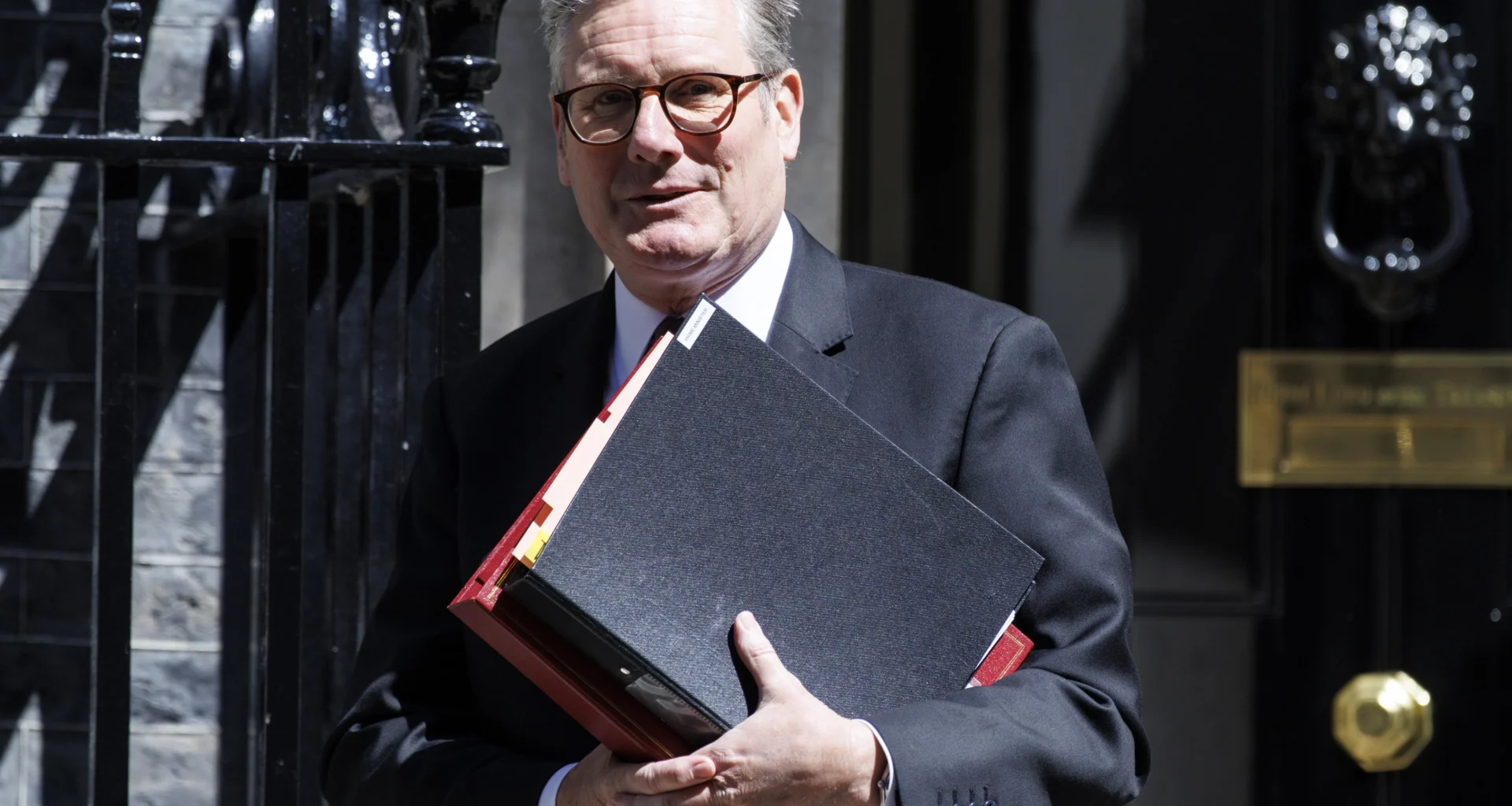EU-UK ties are currently at their warmest since before the 2016 Brexit referendum. While this partly reflects the change of UK government last July, a key external factor is the tumult of the Trump administration which has brought London and Brussels closer together.
So much so that, ahead of the big UK-EU summit on Monday (May 19), a leaked agenda indicates that the two sides may frame their renewed partnership as a counter to the chaos of the Trump team. The leak points to the importance of “free and open trade”, rather than tariffs, and highlights the “vital” nature of multilateralism, and “international development”.
While final details are reportedly still being hammered out, including fishing quotas and a possible youth mobility deal, it looks likely that the two sides will announce a deeper strategic partnership. This builds from the 2020 EU-UK Trade and Cooperation Agreement (TCA) agreed between then-UK prime minister Boris Johnson and European Commission president Ursula von der Leyen.
Yet, while the security and defence deal is relatively uncontroversial in UK politics, deeper economic ties with the EU will trigger more debate. This follows recent comments by UK Finance Minister Rachel Reeves, who asserted that improving trading links with the EU is “arguably more important” than securing a big “economic deal” with the US.
BT in your inbox
Start and end each day with the latest news stories and analyses delivered straight to your inbox.
The UK public also appears to support this view too. More than half (58 per cent) of voters want closer trade with the EU, compared to just one in five (20 per cent) who prefer deepening ties with the US, according to a recent BMG Research poll.
This sentiment is also reinforced by Bank of England governor Andrew Bailey who argued recently that “having a more open economy to trade with the EU… would be beneficial. It is important we do everything we can to ensure that whatever decisions are taken on the Brexit front do not damage the long-term trade position. So I hope that we can use this to start to rebuild that relationship”.
The reason this issue is so pressing is the appetite from the authorities in both powers to enhance growth. The TCA is a hard Brexit deal that saw the UK’s economic ties with the EU significantly reduced.
Indeed, the UK-EU agreement may be the first trade negotiation in history where barriers went up, rather than down, compared to the status quo. It is only therefore a starting solution to future UK-EU economic collaboration.
On the economic front, what is becoming clearer five years on from the signing of TCA is that it has created structural impediments to trade that aren’t improving significantly. This has been highlighted by national business groups like the British Chambers of Commerce too.
The EU got much of what it wanted from TCA, including a zero tariff, zero quota deal for goods, in which it runs a surplus with the UK. Meanwhile, Brussels gave away little on services, which is a UK strength. The longer the agreement remains unchanged, the more pressing it is for London to reform it.
Part of the challenge with the 2020 TCA is that it was struck in just eight months. So what has been called a bare-bones agreement was the almost inevitable result.
However, as significant as the Brexit reset on Monday may prove to be, it may well only be the first of multiple renegotiations in the decade or two to come. That is, unless a future UK government makes an, as yet, unexpected attempt to rejoin the EU.
To be sure, there is growing support in some parts of the population for rejoining the Brussels-based club. This includes the Scottish National Party and many wider politicians on the left and political centre ground. However, with UK Prime Minister Keir Starmer having ruled out EU membership, and the Conservatives now having very few pro-Brussels legislators among them, it is unlikely that the UK will go back into the club during this political generation, and possibly never.
Rather than seeing the upcoming summit as a one-off process, it is therefore likely the period beyond may see further UK-EU bilateral deals to re-fashion the partnership, potentially in a similar scenario to recent Swiss-EU relations. The Swiss example is interesting in its parallels with the UK, given that in 1992, Switzerland voted by 50.3 to 49.7 per cent against joining the European Economic Area, which is an extension of the EU’s single market to member states of the European Free Trade Association. In the period since, Switzerland has negotiated a series of deals with the Brussels-based club.
If the UK experience with the EU proves similar, it will be one of the great ironies of the 2016 referendum. That is, despite the plebiscite that saw around 52 per cent of the population apparently voting for cutting ties with the Brussels-based club, London has had to devote huge attention to Europe since then.
So the UK’s future relationship with the EU is still far from being completely re-defined for the Brexit era, despite massive efforts to do so. Moreover, views on the relationship the nation wishes to have with the club could well change significantly, in a more or less integrationist direction, as political and public opinion evolves into the 2030s.
The writer is an associate at LSE IDEAS at the London School of Economics
